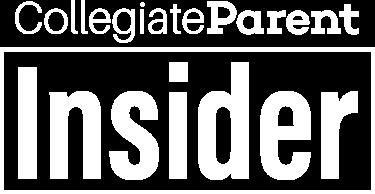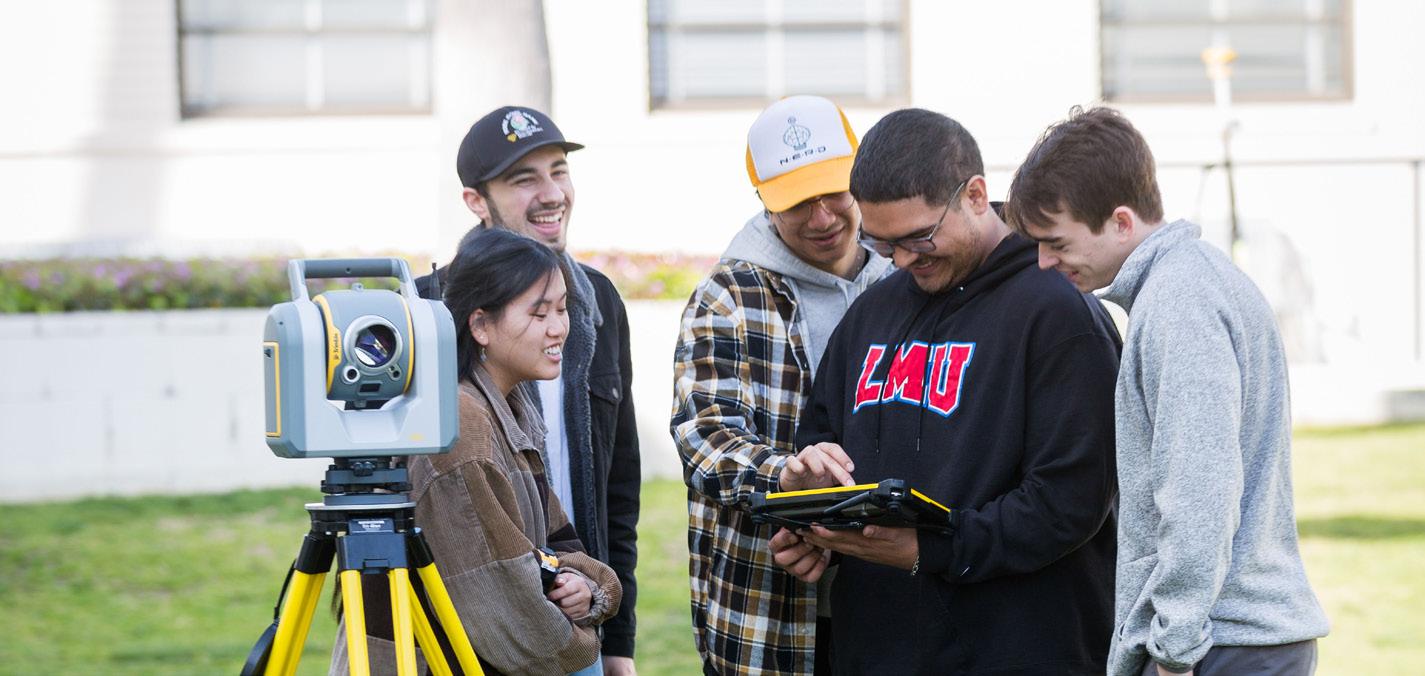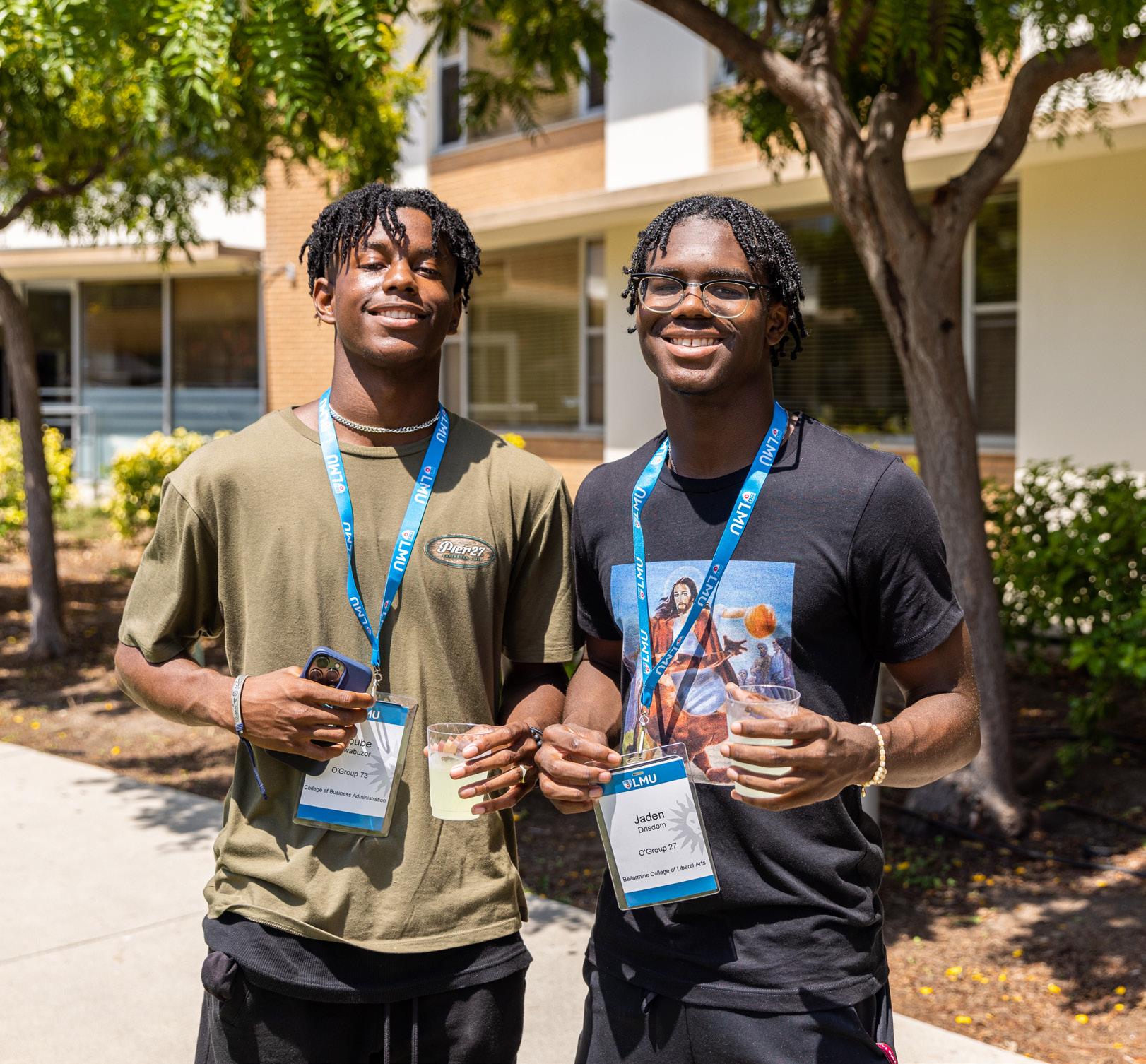

Meet Hotel June. From the team that brought you Proper.



Meet Hotel June. From the team that brought you Proper.
Stir the senses and escape — cozy modern rooms, coastal views, and restaurants and bars inspired by a culinary road trip from Santa Barbara to Northern Baja Mexico, conceived by the award-winning culinary team behind Scopa. Experience the bliss of an afternoon spent poolside…or the effortless ease of our prime West LA location and walking to LMU.

Use booking code LMU for preferred rates and views.

Whether you seek waterfront luxury, laid-back beach vibes, or eclectic iconic Venice style, the Pacifica Hotels Collection of Marina del Rey hotels & restaurants is sure to delight. Consistently ranked the top area hotels on TripAdvisor , each of our locations o ers a truly memorable stay near LMU






V isit PacificaHotels.com for exclusive rates and promotions.
®
We are strong believers in the importance of a student's support system as they tackle the challenges and opportunities of college. Whether you are the parent, grandparent, stepparent, guardian, family friend, counselor, coach, or mentor of a college student, you can have a positive impact on the student you care about and their success.
This guide touches on many important and helpful topics. There are additional resources on CollegiateParent.com.
Sincerely, CollegiateParent
CollegiateParent provides print and digital resources for the families of college students through our website and in partnership with colleges and universities across the United States. Please visit COLLEGIATEPARENT.COM to get our latest tips, find out more about your student’s school, sign up for the Loop (our parent eNewsletter), and connect with us on social media.
INSIDER CONTENT (PART 2–PART 4) BY: Amy Baldwin, Ed.D., LaTrina Rogers, Suzanne Shaffer, Jennifer Sullivan, and CollegiateParent staff.
DESIGNED BY: Kade O’Connor © 2023 CollegiateParent. All rights reserved.

Welcome to Loyola Marymount University! Steeped in great history, both our Jesuit and Marymount traditions set the foundation upon which we continue to build and grow.
We hope that you see firsthand the care that we take to create an environment of academic, personal, spiritual and professional growth. At LMU, your student will be challenged to grow by their interactions in the classroom, through co-curricular experiences and with their fellow classmates.
We encourage you to empower your student to embrace the challenges they will undoubtedly face during their college years. The best way for you to help your student is to encourage them to use all the resources available to them at LMU, be involved on campus and use every opportunity to interact with faculty and staff to make their college experience all they imagine it to be.
We realize this year will be filled with many changes for both you and your student, but you are not alone. We will be here to answer questions and provide the resources you need for your student. The LMU Parent and Family Guide has important contact information that you will find helpful throughout your student’s time at LMU, and the Parent and Family Programs office is always here to help.
We look forward to a great first year!
Briana Maturi Director Student Transitions and Success, Parent and Family Programs310.338.5252
lmuparentprograms@lmu.edu


The college years represent a unique stage of supporting your student. It is a time that offers new rewards, challenges, questions and concerns. At LMU, we hope to provide you with a link to a community of support, ideas and resources as families grow into their “revised” role during college.
LMU’s Parent and Family Programs supports our families by providing resources, education and support. Our Parent and Family website includes Parent Pride, an online email newsletter that features articles, resourceful tips and other online tools that aid you during your student’s experience at LMU. There are articles on how to adjust to college life, how to successfully navigate the first year, ways to get involved and much more!
resources.lmu.edu/parents
As the parent or family member of a first-year student, if your student provided your email address on their application to LMU, then you will automatically be uploaded into our system. If you do not receive Parent Pride emails, please contact the Parent and Family Programs office via email and we will be happy to add you to our distribution list.
Student Transitions and Success
Parent and Family Programs
Malone Student Center, Suite 301 310.338.5252
lmuparentprograms@lmu.edu
lmu.edu/parents

Student EXP
At LMU, we believe education happens in all areas of campus life, both inside and outside the classroom.
When it comes to life outside the classroom, Student Affairs has created a framework to guide students’ experiences in meaningful ways — we call this the Student EXP (short for the Student Experience). The Student EXP is LMU’s dynamic co-curricular pathway to explore, grow, and learn outside the classroom. At its core are Five Pillars, and each represents a habit, a value, or an experience we think is integral to developing an LMU Lion.
Information on the Student EXP and much more can be found on the Student EXP website, an online hub featuring all the information you will need to find events and programs, service opportunities, recreation and fitness activities, support, and more. Students can also use LEO to find events, join clubs and organizations, receive news updates, and take advantage of life as a Lion.
The Five Pillars of the LMU Student EXPerience:
1. Integrate Mind, Body and Spirit
2. Commit to Service and Justice
3. Become a Global Citizen
4. Practice Ignatian Values
5. Live a Life of Purpose
1. Integrate Mind, Body and Spirit
Demonstrate transformative growth and develop as whole persons through the integration of mind, body and spirit.
2. Commit to Service and Justice
Be socially responsible citizens committed to building a more just world.
3. Become a Global Citizen
Value the diversity of the human experience and commit to the practice of interculturalism to make meaningful contributions as citizens of the global community.
4. Practice Ignatian Values
Make decisions congruent with their personal beliefs, values, and faith through continuous reflection and discernment.
5. Live a Life of Purpose
Lead a life where their greatest passion meets the world’s greatest need.
In the belief that the glory of God is a human being fully alive and grounded in both Jesuit and Marymount traditions, Student Affairs supports the LMU mission through programs and services designed to advance student learning.
Student EXP: studentaffairs.lmu.edu/studentexp
Instagram: @lmustudentexp X (formerly Twitter): @lmustudentexp
Families, you are integral members of our vibrant Lion community. You can be an LMU advocate on campus and at home by serving as a volunteer, attending or hosting LMU gatherings, and supporting the university philanthropically.
Various LMU departments invite you to get involved in the ways that are most meaningful to you and offers several opportunities throughout the year including:
Admission’s Parent and Alumni Panels: “Experience LMU”
November–December 2023
Parent and Alumni panelists share their LMU experiences with prospective families.
LMU Family Weekend
February 15–18, 2024
LMU Family Weekend is an annual event that allows family members to experience life on the bluff. Attendees get a chance to visit with their students, attend a basketball game, and experience all that being an LMU student has to offer. To learn more, visit lmu.edu/familyweekend
Annual
A 24-hour event, LMU Day of Giving brings the Lion community together with the purpose to make an even greater impact through challenge and matching gift opportunities just waiting to be
unlocked. Choose from hundreds of areas of campus that are meaningful to you, and watch the leaderboards update constantly throughout the day.
Admission’s Parent and Alumni Panels: “Becoming an LMU Lion”
April 2024
Parent and Alumni panelists share their LMU experiences with prospective and admitted families.
Career Treks
April 2024
Hosted by Family Engagement and Career and Professional Development, parents and alumni engage with LMU students around specific interests through targeted learning, conversation, and informal networking.
Year-Round
Interested in providing internships or jobs for students? Sharing internship, part-time, and full-time positions on Handshake allows you to target specific LMU students by year, major, career interest, and more.
The Parent and Family Leadership Council recognizes leaders in the Lion family including parents, grandparents, and other family members and engages them in the life of the university. Members are dedicated to strengthening the sense of community among LMU families while furthering the university’s mission and vision set forth by the strategic plan for 2021–26 “Creating The World We Want to Live In” through volunteerism and philanthropy. If you are interested in learning more about the Parent and Family Leadership Council or other ways that you can make a difference, please email parentcouncil@lmu.edu and a member of the Parent and Family Philanthropy team will follow up with you directly.

Resources:
resources.lmu.edu/parents/getinvolved Facebook: LMULionFamilies
Instagram: @lmulionfamilies
Admissions
Von der Ahe Hall 100
310.338.2750
admission.lmu.edu
Academic Resource Center
Daum Hall, 2nd Floor
310.338.2847
lmu.edu/arc
Associated Students of LMU (ASLMU)
Malone Student Center 103
310.338.2891
lmu.edu/aslmu
Athletics
Gersten Pavilion
310.338.2765
lmulions.com
Bellarmine College of Liberal Arts
Advising Center
University Hall 4600
310.338.7365
bellarmine.lmu.edu/advisingcenter
Campus Bookstore
Von der Ahe Hall, Basement Level
310.338.2889
loyolamarymount.bncollege.com

Campus Ministry
Malone Student Center 210
310.338.2860
lmu.edu/campusministry
Campus Recreation and Student Facilities
Burns Recreation Center
310.338.2912
lmu.edu/campusrec
Campus Safety Services
Foley Annex
310.338.2893
safety.lmu.edu
Career and Professional Development
Von de Ahe Hall 135 310.338.2871
careers.lmu.edu
College of Business Administration
Hilton Center for Business
Suite 200
cba.lmu.edu/studentsuccess/advising
College of Science and Engineering
Center for Student Success
Pereira Hall Suite 100
cse.lmu.edu/centerforstudentsuccess
Community of Care
Malone Student Center 301
310.338.3756
studentaffairs.lmu.edu/wellness/coc
College of Communication and Fine Arts Academic Advisement Center
St. Robert’s Hall, Suite 102
310.338.5272
cfa.lmu.edu/advising
Dean of Students Office
Malone Student Center 301
310.338.3756
lmu.edu/sado
Disability Support Services
Daum Hall, 2nd Floor
310.338.4216
lmu.edu/dss
Division of Student Affairs
Malone Student Center 355
310.338.2885
studentaffairs.lmu.edu
Dream Center
Daum Hall 214
310.568.6847
lmu.edu/dreamcenter
Ethnic and Intercultural Services
Malone Student Center 201
310.338.5808
lmu.edu/eis
Family Engagement
Von der Ahe Hall 110
310.258.4348
lmu.edu/parents
Financial Aid
Von der Ahe Hall 270
310.338.2753
financialaid.lmu.edu
First to Go
Daum Hall, 2nd Floor
310.338.7677
lmu.edu/firsttogo
Information Technology Services
Daum Hall, 1st Floor
310.338.7777
lmu.edu/its
Katz Family Academic Skills Program
Daum Hall
310.338.7702
academics.lmu.edu/ katzfamilyacademicskillsprogram
LMU CARES (Campus Awareness Resource Education Services)
Malone Student Center 301
310.258.4381
The Loyolan
North Hall
310.338.2879
laloyolan.com
Off-Campus Student Life
Malone Student Center 301
310.338.3756
studentaffairs.lmu.edu/housing/ offcampusstudentlife
Office of International Students and Scholars
Malone Student Center 201
310.338.4303
lmu.edu/oiss
Office of the President University Hall 4800
310.338.2775
president.lmu.edu
Office of the Registrar
Von der Ahe Hall 150
310.338.2740
registrar.lmu.edu
Office of Student Conduct and Community Responsibility
Malone Student Center 401
310.338.1821
lmu.edu/osccr
OneCard Office
University Hall 1100
310.338.2735
admin.lmu.edu/onecard
Pam Rector Center for Service and Action
St. Robert’s Annex
310.338.2959
lmu.edu/csa
Parent and Family Programs
Malone Student Center 301
310.338.5252
lmu.edu/parents
Parking and Transportation University Hall 1766
310.338.1681
lmu.edu/parking
Sorority and Fraternity Life
Malone Student Center 120
310.338.7814
lmu.edu/sfl
Student Employment Services
Malone Student Center 301
310.338.7606
lmu.edu/ses
School of Education
Student Success
University Hall, Suite 2100
soe.lmu.edu/studentsuccess/advising
School of Film and Television
Academic Advisement Center
Howard B. Fitzpatrick Pavilion, Suite 102
310.258.2611
sftv.lmu.edu/aac
Student Health Services
Burns Recreation Center, 1st Floor (North Side)
310.338.2881
lmu.edu/health
Student Accounts Center Von der Ahe Hall 250
310.338.2711
financialaid.lmu.edu/ parentsandfamilies/ studentaccountscenter
Student Housing
Leavey Six 101 310.338.2963
lmu.edu/housing
Student Leadership and Development
Malone Student Center 101
310.338.2877
lmu.edu/sld
Student Psychological Services
Burns Recreation Center, 2nd Floor (North Side)
310.338.2868
lmu.edu/sps
Student Transitions and Success
Malone Student Center 101
310.338.5252
lmu.edu/studentsuccess
Title IX Coordinator University Hall 1900
310.338.6105
lmu.edu/titleix
Tower Yearbook
North Hall
310.338.5145
thetoweryearbook.com
William H. Hannon Library
Hannon Library
310.338.2788
library.lmu.edu
We know paying for college can be stressful. We don’t think it needs to be that way. At College Ave, we’ll help you choose a private student loan that keeps pace with your family’s unique budget and goals. Plus, we’ll make it fast and easy.
Simple, 3-minute application
Flexible repayment options
Helpful tools and resources
winner


This sounds simple, but some students find it very difficult. This is because asking for help requires students to do two things:
1) acknowledge that they need help and
2) have the courage to ask for it.
In college, if students don’t say anything about a problem, staff and professors will assume they have everything under control. If students are having trouble with anything (academics, roommates, mental health, etc.), they (not their parents) need to speak up. Students who are introverted or anxious may be daunted by the prospect of approaching their professor. Practicing or role-playing this kind of interaction can help them build confidence.
Where did your student do homework in high school — on their bed, at a desk, at the dining room table? Encourage them to reflect on their previous study habits, and then think about their ideal college study environment. Campuses have many different types of spaces for students to work, hang out and socialize. Your student should try a few spots to find one that makes them feel relaxed and productive.
New college students receive a school email address and username. Most colleges also require new students to set up an account in an online learning management system (LMS) for viewing grades and submitting assignments. Remembering all their usernames and passwords can be tough! Ideally, students find an organizational system they like before arriving on campus, but it’s not too late. There are great phone apps that store and organize this important information.
Your student’s physical and emotional health is as important as their academic success! Every college and university has health and mental health services available on campus. Even if your student doesn’t need this care right away, chances are good that soon they, a roommate or friend will get sick or may need some support or a listening ear.
Encourage your student to explore services on the college’s website and locate the health care building, its hours of operation and how to make an appointment. Some offices accept walkin appointments while others schedule appointments in advance online.
Developing college-level academic, social, emotional and executive functioning skills takes time. During the early weeks and months of college, your student will rely heavily on the academic and social skills they developed in high school.
For some lucky students, this works just fine. Others are surprised to learn that their high school skills aren’t helping them meet the rigors of college. This is completely normal! Successful students recognize which high school skills work and which don’t. Trust the process and settle in for the marathon. The student who enters college will not be the same person who graduates. Walk alongside them and support them.
Expectations shape our attitudes and reactions. If we expect perfection, we will often (always?) be disappointed. If we expect some bumps in the road we won’t be surprised to hit a pothole. College students must learn how to balance academic demands, friendships, nutrition, exercise, mental health, money management and more — without a parent around to help. Oversleeping an occasional class or ordering too many GrubHub deliveries in the first semester is common. They’re figuring it out — just like you did at their age.
It will happen eventually — you get a text from your student with bad news. Or maybe it’s a letter in the mail addressed to your student with midterm grades, or a social media post that sends up your parental red flag. Have you ever gone down this dangerous road? “They got a D! What if they fail the class? What if they fail ALL their classes?”
We parents tend to obsess over bad news. It’s important to take care of yourself. Avoid the “what if” thoughts by doing something joyful and distracting: turn on uplifting music, offer to walk a neighbor’s dog if you don’t have one of your own, spend 30 minutes writing a letter or nice comments on social media, meet a friend (and don’t talk about your kids!).
Students love coming home because it’s where they can leave the pressures of school behind and just be themselves. However, parents may see school breaks as a chance to get stuff done (go to the dentist, get a haircut, visit Grandma!). Try not to overdo it. There are sure to be serious things to discuss (grades, their budget), but start by making them feel special when they come home — and loved.
Your child leaving for college affects your life as well. Allow yourself to feel your feelings. Treat yourself with patience and compassion. There’s no rush to “have it all together” immediately. If you feel like texting your student to say “I love you,” do it! They may need to read those words as much as you need to send them.
First-year students are starting a new chapter: college. It’s a new chapter for parents, too.
As a Director of Residential Life, I know it’s not easy to leave your student on their own, whether this is the first or third time you’ve taken a child to college. It’s natural to experience a myriad of emotions, and sometimes anxiety predominates. You’ve been nurturing your student through every stage of life, and the thought of not being there as they navigate new experiences is nerve-wracking. Even the parents of first-year commuter students are nervous — though their students come home daily. These emerging adults are still your babies!

Campus housing staff are aware of how parents are feeling during the first semester of their student’s college journey. Many institutions offer programs, groups and events for family members to create a community of support. We’re there for you even as we encourage you to step back a bit to show confidence and trust in your student. Giving them space to develop
into the person they desire to become is one of the goals of higher education. Your first-year student’s living situation will play an important role in their adjustment to college. Schools want students to have a positive residential life experience! But it’s important to remember that there is no way to completely avoid some level of awkwardness or adversity during a student’s time on campus.
Communication will come from your student (not housing staff).
Many parents expect to receive a high level of personal attention from campus housing staff and get a phone call whenever there’s an issue with their student. In fact, college students are considered adults, and laws such as FERPA (the Family Educational Rights and Privacy Act) are in place to protect their privacy.
There are staff available to support students in every aspect of the college experience. It is the student’s responsibility to reach out for assistance. There are many ways students can connect with campus resources, and procedures in place for students who are struggling, whether academically or personally.
Housing staff will not call parents at every point of adversity; instead, it’s the student’s responsibility to communicate with their parents or guardians. However, housing staff can call parents for drug- and alcoholrelated issues or when a student is a danger to themselves or others.
We’re devoted to students’ wellbeing, but don’t keep tabs on them.
Another common expectation some parents have is that campus housing staff will help them track the whereabouts of their students. We often hear from parents concerned because their student isn’t answering the phone. Parents even arrive on campus and want to enter a student’s room “just to check in.”
We understand parents worry if they don’t hear regularly from their student. It takes a while to get used to the fact that you no longer know at all times where they are and what they’re doing. It’s natural to want to make sure they’re okay.
However, most residence halls have visitor policies which apply to family members, too. And unless it’s an emergency, there’s not much housing staff can do about locating a student who is not in their room or answering their phone. If there is an emergency with a student who hasn’t been seen or heard from for a specific amount of time, typically that situation is given to Public Safety.
To avoid confusion and disappointment about campus housing policies and processes, here are three things it can be helpful to understand.
In recent years, I’ve found that many parents have unrealistic expectations of campus housing staff. There can be a “customer service” mindset, often accompanied by a sense that campus housing has an obligation to make things right for the customer (whether that’s the student or parent).
Take some time during these early days of college to make a plan with your student about how often you will text or talk. This will put your mind at ease.
Your student will learn to do things on their own!
Over the years, I’ve had parents make some jaw-dropping requests such as personally waking up their student for class, cleaning rooms, and helping students pack for move-out. Maybe because I’m known as “The Dorm Mom,” they assume I’ll do things for students that the students’ own parents might do at home.

I believe that these expectations spring from love and concern for their children. But since my goal is to foster independence, I encourage students to take care of things on their own. I’m always happy to help by providing clarification, verification, or assistance finding resources to complete a task. And I’ve led classes in the residence halls (and taught private one-onone lessons) on cooking, cleaning bathrooms, doing laundry, and even time management.
So, keep the lines of communication with your student wide open. Ask them what challenging situations they faced this week, what campus resources they took advantage of — and what they learned about themselves and their own capabilities along the way.
College is a time of growth, and campus housing is the perfect supportive space for this growth to happen.


A great way to balance income and spending is to get a campus job. A comprehensive NASPA study found that college students who work parttime during the school year get better grades than those who don’t, probably because they need to be more focused, organized and conscientious about budgeting time for study.
Finding a job in the local community is an option, but on-campus positions have special advantages. The hours are usually flexible, and supervisors will accommodate your student’s schedule. Student employees meet more of their fellow students as well as more faculty members, administrators, and staff — a great network for career mentorship, professional references, and allaround support.
If Federal Work-Study is part of your student’s financial aid package, they can research and apply for available work-study positions, but there are usually plenty of campus jobs to go around for any student who wants one. Departments that hire students may include the admissions and alumni offices, recreation center, library, dining facilities, bookstore, museums and art galleries, language and computer labs, and performance spaces.
In college, probably for the first time, your student will be wholly responsible for taking care of their own physical and emotional well-being.

For that reason, the most important health conversations you can have with them are ones where you encourage them to make wellness a priority in their daily lives, to familiarize themselves with health support resources on campus, and to always feel comfortable reaching out to you when they have a concern or just need a little advice.
Revisit health-related topics each and every time you talk with your student!
Make sure they know how health insurance works.
Go over their coverage, whether they’re on the school’s health plan or still covered by your family insurance, and how and where to access services.
Will they use the campus health center for all their needs, or go there just for the easy/free stuff, such as flu shots, treatment for minor illnesses and see a provider or specialist in the local community?
Review resources available on campus.
They’ll receive a lot of information at orientation and during move-in, but it can be overwhelming. Look at the website so you can nudge them to explore what’s offered at the student health clinic and counseling/mental health center. Your student will find online informational materials, workshops, and drop-in support groups related to pretty much every wellness issue under the sun:
• Alcohol education
• Conflict resolution skills
• Nutrition and body positivity
• Sexual health, gender identity, relationships
• Stress and anxiety management
Don’t forget about religious and spiritual life opportunities as well as fitness classes at the campus rec center.
Go over what to do if they get sick.
Your student should have a first aid kit with a thermometer and basic overthe-counter remedies as well as a supply of rapid COVID-19 test kits. Talk through possible scenarios, ranging from treating a cold to how to know if it’s something more serious like Covid or the flu. Remind them that if symptoms (sore throat, fever, vomiting, headache, etc.) linger for days without improvement, they should visit the campus health center — but they don’t have to suffer in silence if they just want to get checked out.
Since colleges are bound by a federal law called FERPA which governs the privacy of student educational and treatment records, you won’t know if or when your student visits campus health and counseling clinics. It’s up to your student to decide whether to share information with you, which is
something else the two of you can discuss early on.
Stay up to date with COVID-19 protocols.
The pandemic will likely wax and wane as new variants emerge and cooler weather sends people back indoors. Staying current with vaccinations and boosters will be essential. The university will communicate any changes to campus rules regarding mask requirements, in-person vs. online gatherings, and more.
Most families have strict rules about drinking in high school, but in college, an abstinence-only policy may not be practical. National surveys show that 9 out of 10 college students experiment with alcohol, 7 out of 10 drink regularly, and 3 out of 10 will be problem drinkers. This doesn’t mean you should feel helpless. By talking regularly with your student about the campus party scene, their experiences with alcohol, and what it means to drink responsibly, you can continue to have a positive influence.
Education isn’t the same as endorsing underage drinking. Instead, when you teach your student about how alcohol works in the body, the importance of protecting their cup and sticking with friends at parties, and how to recognize when it’s time to exit a situation or call for help, you emphasize health, safety, and self-advocacy.
These conversations require that you know your facts, be honest and open-minded, and most of all, be ready to listen. For more, visit collegiateparent.com/wellness/talkabout-responsible -drinking
When it comes to personal safety, today’s college students live in a world that requires vigilance and awareness. Colleges and universities work to foster safe environments, but students share responsibility.
As your student acclimates to their new campus and life, check in about what they do on a daily basis to keep themselves safe. You can help by supplying good advice and the best safety tools available.

These recommendations will be shared at orientation and move-in, but it’s good to revisit the list periodically. It may take your student a while to check off every box!
` Always lock your dorm room and secure your valuables.
` Don’t let anyone who doesn’t have a student ID into the residence hall. Even if they ask nicely. Verify their identity.
` Sign up for campus emergency alerts. Program emergency numbers into your cellphone for easy access.
` Use the buddy system. It can be tempting to go for a run alone, or make a quick trip to the library by yourself after dark, but it’s not worth the risk. Never be alone at night or in remote areas. Stick with your friends at parties and don’t let a friend leave a party alone or with someone they don’t know. Use the buddy system when taking public transportation, Uber and Lyft, too.
` Use campus security escorts and safe rides.
` Take advantage of safety training. Many campuses offer self-defense classes, or you can sign up for one at a local YMCA or recreation center.
` Register any valuables with serial numbers (electronics, bikes, etc.) with the campus police department. This makes them easier to track if they’re stolen.
Your student’s smartphone can be a great self-defense tool. Safety apps give them instant access to authorities, parents and fellow students when they feel they’re in an unsafe situation. Encourage your student to ask their friends for safety app recommendations, and give free apps a test drive. A few to consider are Watch Over Me and Circle of 6.
These items pair well with a selfdefense class because, when faced with danger, your student needs to be prepared to use them quickly and with confidence.

` A whistle or personal safety alarm is the simplest option. Alarms, which are small and can be attached to keys for easy access, emit up to 130 decibels to scare off an attacker plus capture the attention of bystanders.
` Pepper spray, which causes severe irritation of the eyes, skin and respiratory system, is popular because it’s quick, easy to use and effective. However, pepper spray is illegal in some states. Check the law where your student attends school.

` Remind your student to add an ICE (In Case of Emergency) number and also the campus police emergency number into their phone’s contacts.
` Ask your student about emergency drills that have taken place. What were they instructed to do in different kinds of emergency situations? Going over the information with you should help fix it in your student’s mind.
` Be sure you have the names and phone numbers of a few of your student’s roommates or close friends as well as their parents, and that they have yours.
` Students should understand the natural hazards on and near their campus, for example, if the campus is in a flood plain. Pay attention to severe weather warnings so they can be in a safe place if/when a storm hits.
` They should know multiple ways out of the buildings they frequent on campus, including the fire exits.
` They should know their residential housing staff/landlord and be able to get in touch with them quickly.
` In a weather-related emergency, your student could be stranded in a resident hall or apartment for a few days, potentially without power. Encourage them to make an emergency kit that includes a three-day supply of water and nonperishable food (dried fruit, nuts, bars, tuna packets, crackers, etc.), a flashlight and extra batteries, a battery-powered or hand-cranked radio, first aid supplies, any medications they take, rain gear and warm clothes.
Students who drink excessively are at higher risk of being involved in car accidents, hazing, and sexual assault. Keep talking to your student throughout college about alcohol and substance use.
Ask questions and listen to what they have to say about social situations they’ve been in or witnessed. Talk through possible scenarios so they can anticipate how they might act, react and help their friends. Discuss the dangers of drink tampering and binge drinking. Make sure they know how to drink responsibly and how to get home safely when they are out late.
When talking to your student about alcohol use and safe partying practices, try to be understanding and careful in your judgments as this will encourage your student to be open with you and invite more conversations down the road. Learn more at niaaa.nih.gov/ publications/brochures-and-factsheets/college -drinking
Don’t hesitate to talk about personal safety!
Knowing and practicing safety
precautions will lead to your student feeling empowered not scared. Informed students are ready to steer clear of dangerous situations, and prepared students are more likely to emerge unscathed from an attempted crime. Help your student be both.

The student-professor relationship is one of the most important to cultivate. Academic advisors are also key players in a student’s successful adjustment to college and can guide them all the way through to an on-time graduation.
You can encourage your student to create open lines of communication with their professors and make the most of every advising appointment. Here are tips and talking points.

1. Establish a relationship early.
Professors will be happy to get to know your student before a problem arises. Any time during the semester (with the exception of the day before the final!) is a good time to reach out, but the sooner the better.
Your student should take cues from the syllabus about the best way to communicate. Is the professor available to meet in person or is email or an online meeting better? It should go without saying — if the professor prefers email, then use email and check it often.
When your student meets with the professor for the first time, they should have a list of questions ready. Here are a few that can help your student learn more about the professor’s expectations:
• “I want to learn as much as I can in your class. What can I do to succeed?”
• “I usually [fill in usual study practices]. What will work best for this class?”
• “I want to be sure I start off with solid work in your class. Can I come see you before an assignment is due to make sure I’m on the right track?”
2. Seek immediate feedback after graded work.
If your student gets a low grade, or lower than anticipated, even if they think they know why, it’s good to check in with the professor as soon as possible. Here’s how to open a conversation:
• “I reviewed my work. Can we go over what I did wrong so I understand what to do differently next time?”
• “I’m bummed I messed up that assignment. Would you help me see where I made mistakes?”
• “Can we talk about how this low grade will affect my progress in the course? I want to be sure to make the improvements I need to raise my grade.”
Because students share this fear with me, it’s worth telling you: Yes, professors really want to talk with students who’ve failed an assignment. No, they don’t think their students aren’t smart enough to pass their class.
Professors want their students to learn and to earn good grades. Your student shouldn’t be ashamed to speak to a professor about a class they’re failing. Reaching out demonstrates a willingness to improve.
Academic advisors help students register for courses and keep track of credits and degree requirements. But that’s not all an advisor can do. Advisors can help your student connect with resources if they are having academic, personal or financial challenges. Your student should view their advisor as a guide, coach and support system. Here are three steps to follow.
1. Plan the visit with the advisor. Students should prepare ahead of time for every appointment. The advisor needs to know what your student needs as soon as they get there.
• Create a list of questions or a goal to share. For example, “I’m here to talk about what classes to take next semester and what would happen if I change my major.”
• Look up policies, forms or other information that will improve the conversation. Your student may want to read course descriptions or download a copy of their degree plan.
• Be ready to take notes. Will your student handwrite notes, type, or record the session? They’ll need notes about what was discussed and what steps to take next.
I know from professional experience and also from my own son who’s a college student, that many students don’t know what to say in the moment even with a list of questions in their hand. That’s why it’s important to practice the conversation ahead of time. You don’t have to know the ins and outs of college advising — you just need to help your student learn how to ask questions and follow up with additional questions. Here’s a sample script:
Advisor Role: What can I do for you today?
Student: I need help registering for classes and I want to talk about changing my major.
Advisor Role: First, what classes are you thinking about taking? Then, tell me what’s motivating you to change your major.
Help your student identify what preparation they still need to do before their appointment and clarify what they want from the meeting.
A single advising appointment probably won’t answer all your student’s questions. They may need a follow-up meeting or even multiple meetings.
Encourage your student to check in regularly with their advisor even if there isn’t a pressing issue. Other reasons to meet with an advisor include:
• Your student’s progress in a course or courses is in jeopardy and they need to know what will happen if they fail a class.
• They can’t get into a class that’s required for their degree plan.
• They may not graduate on time.
• They want advice on a different major, a minor or a career pathway.
Advisors can’t solve all of your student’s problems, but they can do a lot more than help with course registration. In fact, if your student cultivates a solid relationship with their advisor, they will have a coach and cheerleader all rolled into one.



Every parent wants their student to find their “calling” and click with a major that will help pave the way to a career. Students want that, too! But the process of declaring a major can be scary as well as exhilarating.
By Amy Baldwin, Ed.D.“Am I making the right choice?” they wonder anxiously. “Will I be able to find a job after graduation?” And then there is the classic question from wellmeaning family and friends: “What are you going to do with that?”
For students whose majors are clear pathways to careers (think nursing, or accounting), the last question can be answered easily. However, for undecided students worried not only about choosing the “right” major but also about how their degree will prepare them for employment someday, the question can increase their self-doubt. And with self-doubt comes even more anxiety.

1. Relax.
No need to make this experience more traumatic than it already is. Remember that it’s normal for the journey from major to career to twist and turn. Make an effort to keep things in perspective and you’ll be able to share this attitude with your student.
2. Have them reflect on their past to figure out their future.
One of the best strategies to use with college students is to encourage them to reflect on what they liked when they were younger, what they did in their spare time for fun, and what activities they participated in and why. Their past holds clues about the kinds of majors that might interest them. For example, someone who counseled their friends through difficult times may find themselves interested in psychology or social work. An athlete might gravitate to sports management or sports medicine.
3. Encourage them to focus on what they want to learn, not what sounds good.
The best way to erase self-doubt is to find a subject they like and that will help them build transferable skills. Ask what kinds of classes interest them the most and which classes challenge them to think and grow. Their answers should give them an idea of what they want to spend several years studying. A student who says they want to major in business “so my parents will leave me alone” is not a student who will be happy for long with their choice.
4. Suggest they compare degree plans and course descriptions.
Reading through the college’s course catalog is another way to narrow their choices. The course catalog and degree requirements can be found on the school’s website. If your student is choosing between economics and education, for example, suggest they read through the degree requirements, such as internships or foreign languages, to see which plan appeals to them more. Have them browse the course descriptions as well. They will spend a lot of time in their major courses and should be intrigued by the topics that await them in that department.
5. Remind them to speak regularly with an academic advisor and/or a career counselor.
The academic advisor will help them navigate the process of completing a degree, and the career counselor can help them develop a plan to translate what they’re learning to workplace needs. Meeting with both throughout college can keep your student on track and help them make any needed adjustments along the way.
6. Suggest they interview recent college graduates.
Some of the best advice about college majors comes from recent graduates. New graduates are likely to say that the skills they acquired in college (e.g., critical thinking, written communication, appreciation for diversity) are more important than the content knowledge they gained from their major. At the very least, their advice may lower the pressure to make a “right choice.”
Luckily, there are stress-reducing ways to support and guide students who are at this juncture. Here are six tips:






